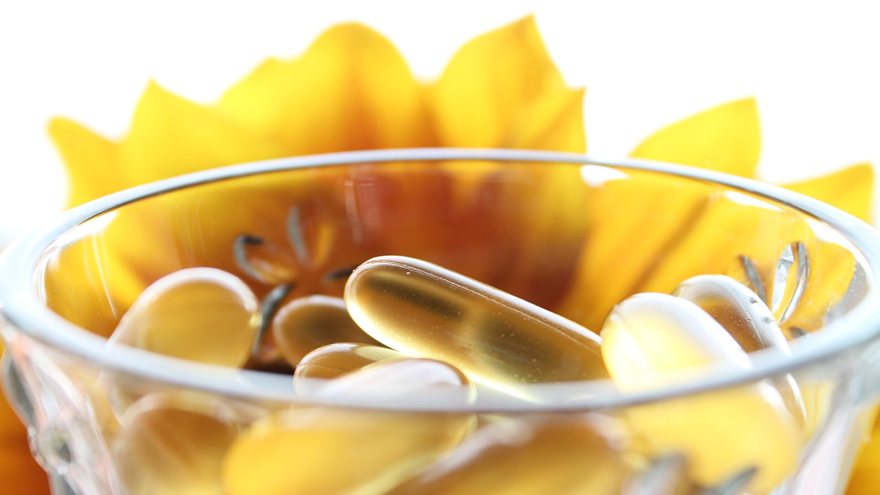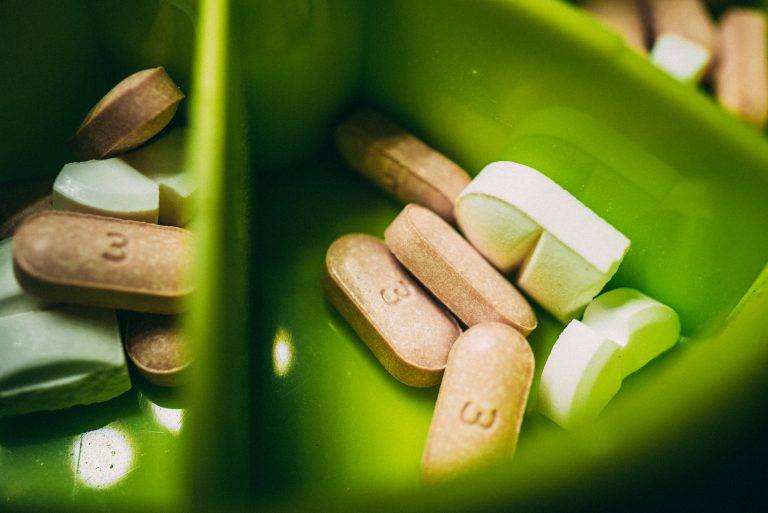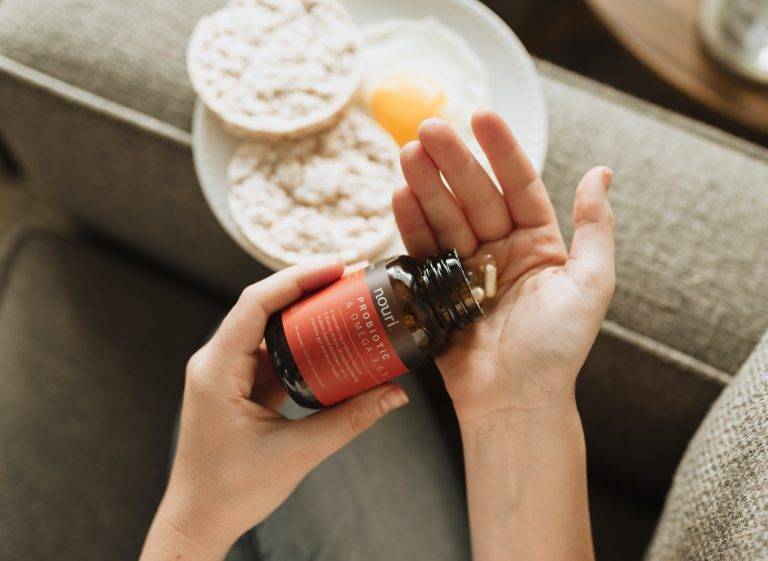
What are the best supplements for gut health? The market is now packed full of supplements for healthy gut. How can you know which ones are good and which ones are bad?
To find out, we need to understand what exactly are the signs of a healthy and unhealthy gut. We also have to consider the role that gut health supplements play in keeping our gut strong and healthy.
 Below are the most common signs of a healthy gut:
Below are the most common signs of a healthy gut:
The gut is incredibly complex as well as being important to our day-to-day health. Over the last twenty years, studies have shown strong links between our gut health and our immune system which in turn affect our mood and mental health.
Life is now very stressful, and many eat the wrong foods. Moreover, high fat, high sugar, processed foods are readily available. When some people get sick, they go straight to the doctor for antibiotics that damage their gut flora. Once this pattern becomes established, it can affect our holistic health such as our weight, skin, brain, and heart.
There are a number of aspects to having an unhealthy gut and some of these are as follows:
If you have any of the above symptoms you can take supplements for a healthy gut as well as adopting certain lifestyle changes to return your gut to a balanced state.
 So what types of supplements for gut health should you consider? First, you need supplements that address the issue of intestinal inflammation. This can be caused by a number of things, such as food allergies, drug side effects, or even a diet high in sugar and refined foods. In these cases, it is important to choose a supplement that specifically addresses the problem.
So what types of supplements for gut health should you consider? First, you need supplements that address the issue of intestinal inflammation. This can be caused by a number of things, such as food allergies, drug side effects, or even a diet high in sugar and refined foods. In these cases, it is important to choose a supplement that specifically addresses the problem.
Along with taking anti-inflammatory supplements, you may also want to consider anti-bacterial gut health supplements. Probiotics are living organisms that are beneficial to the digestive tract. Many people have heard of probiotics, but not many realize that there are actually a variety of different strains and species of probiotics.
It is important to choose gut heath supplement that fit your individual needs – some work better for women than others. Remember that just like other supplements, you may need to take your supplements for healthy gut health several times a day for them to be effective.
Other best supplements for gut health include immune system boosters. Sometimes the body’s inflammatory response cannot be stopped or dealt with on its own. For this reason, it is necessary to find supplements that will help boost your immune system so you are better able to defend yourself from harmful substances in the environment.
There are numerous supplements involved in keeping your gut healthy and we will start with supplements that work against inflammation. Short-chain fatty acids deliver a number of gut benefits, forming an intestinal barrier while working against inflammation. These three components are contained in one supplement that is broken down to calcium, magnesium and butyrate.
We have all heard of calcium and magnesium, but not butyrate which is a nutrient that bacteria in your gut produces when fiber and resistant starch is digested. Some of the foods required to release butyrate-producing substances are onions, garlic, greenish bananas, and beans.
Sometimes our bodies do not get enough of this food to produce the required amount of butyrate and this is when we will require a supplement.
You will need calcium, magnesium, and butyrate as a supplement when you have any irritable bowel symptoms and other signs of gut irritation or food barrier function intolerances present.
The right supplement will provide you with 360mg butyrate plus 48% of your daily calcium needs and 60% of magnesium needs. It is encapsulated in a slow-release substance allowing gradual release, to ensure that it is released when it reaches your colon, where it is required.
This is a necessary supplement for many people, depending on age and health.
Curcumin is a component of turmeric (a spice) and is known to provide health benefits against inflammation.
It decreases inflammation in people with diabetes and inflammatory bowel disease making it a good anti-inflammatory for the gut.
Taken on its own, curcumin is absorbed poorly, absorption is increased when it is taken with piperine.
Fish-oil supplements contain omega-3 fatty acids and are important for good health. They are known to decrease inflammation associated with diabetes and inflammatory bowel disease. DHA (docosahexaenoic acid) works by reducing cytokine levels and promoting gut health.
When you look for your fish oil supplement, try to find one with undetectable mercury content.
Alpha-lipoic acid is produced in the body, playing a role in metabolism and energy production. It is also an antioxidant. When taken as a supplement it is known to reduce inflammatory markers. If you have irritable bowel syndrome, an alpha-lipoic acid supplement will help you to reduce the symptoms associated with the disease.
Ginger works on the gut in treating indigestion and reducing the symptoms of nausea and morning sickness. If you take ginger as a supplement, 1 to 2 grams is considered perfectly safe, and if you are suffering from stomach pains and food intolerances, it will give you some symptomatic relief.
Resveratrol is a strong antioxidant found in berries and purple-skinned fruit. If you have gastritis or ulcerative colitis resveratrol will help you. Inflammatory markers in the blood will be markedly reduced, and even blood sugars are reduced. If you are prediabetic, this is a good supplement for you to take.
Resveratrol is even found in red wine but is not a high enough level to reduce markers. It is best to take a supplement of 150-500 mg per day.
Spirulina is a blue-green alga with strong anti-oxidant effects. This reduces inflammation and strengthens the immune system. If you have anemia or inflammatory bowel disease, Spirulina is a supplement that can help you.
A recent study showed that people who were given 8 grams of Spirulina a day for 12 weeks lowered their levels of inflammation considerably. It also lowered their blood sugars, a positive side effect of the antioxidant protection.
Kakadu plum contains phytochemicals like gallic and ellagic acids and these have both anti-viral and anti-fungal properties.
This combination is known as a superfood and contains powerful anti-oxidant properties, rich in vitamin C and E helping to reverse the effects of free radicals on the body. Kakadu plum is a food found in outback Australia and was eaten by the first nation people for thousands of years.
The Kakadu plum helps to flush toxins from the gut and removes skin blemishes. It is sold as a powder, frozen, or as an extract when you are purchasing a dietary supplement.
Supplements for a healthy gut sometimes require a course of anti-bacterial supplements to restore your gut to normal following an illness.
If you have had a recent course of antibiotics they are quite harsh on the digestive system and kill off a lot of the good microbes as well as banishing the bad ones. So it is time to try some potent natural antibiotics without the negative digestive side effects.
Oregano oil works well using two powerful compounds carvacrol and thymol. This supplement controls bacterial infections and works to promote healing in conditions like inflammation of the gut, candida, allergies, and some cancers. When you purchase it as a supplement, it comes as an oil with a dropper for easy use.
Garlic does work as a strong antimicrobial and can help to move bad bacteria from the body.
It removes free radicals from the body helping to support the immune system. If you have flu, it is a good thing to try as it has a component called allicin that will remove harmful bacteria without killing the good ones.
Another herbal anti-b3acterial natural antimicrobial that kills dangerous bacteria. It is good for combatting colds and flu and maintaining gut health.
A natural and sweet tasting anti-bacterial, very popular as a supplement. It protects against damaging bacteria in the gut. Eat some every day on your breakfast cereal or toast. it heals inflammation and contains a natural form antibiotic called methylglyoxal.
It is known to help prevent gastric ulcers, so if you smoke and drink a lot of alcohol you are going to need manuka honey as a supplement. It will certainly relieve any digestive symptoms associated with digestive stress. It comes in the form of raw honey probiotic as well as a vitamin supplement.
It is even used in wound care for open ulcers and abrasions.
One of the cheapest and best gut health supplements, a natural antibiotic it is highly effective in yeast infections due to Candida albicans. Candida or thrush occurs when our gut flora becomes unbalanced by taking too many antibiotics and killing the good bacteria. It is also capable of suppressing inflammatory markers that lead to infection.
This has been proven to damage pathogens in the body, but further studies are needed. It has been shown to damage gram-positive bacteria.
Aloe vera has long been used in primitive cultures to inhibit bacterial growth from multiplying. It is a reliable anti-microbial treatment.
It also works well as a topical application when applied to the skin.
One of the best gut health supplements is cloves. It has natural anti-inflammatory properties and inhibits the growth of E-coli and other harmful microorganisms that upset the gut. It also contains fiber that is good for the gut, and is considered a strong natural antibiotic by many experts.
 Probiotics are live microorganisms, a health supplement for a healthy gut. They were first discovered over 100 years ago, but have only become prominent in the last 20 years. In 2001, the WHO or World Health Organization issued a ruling for an evaluation on probiotics to be carried out to better substantiate health claims that were being made by manufacturers.
Probiotics are live microorganisms, a health supplement for a healthy gut. They were first discovered over 100 years ago, but have only become prominent in the last 20 years. In 2001, the WHO or World Health Organization issued a ruling for an evaluation on probiotics to be carried out to better substantiate health claims that were being made by manufacturers.
By 2010, the claims were validated and documented and probiotics became mainstream. Much more recently, the Child and Family Health Nurses Association have recognized them as very helpful in establishing gut health in babies with reflux and other digestive problems that often lead to hours of pain and misery for a baby who has formula intolerances and an immature gut.
Probiotics are now considered safe and are helpful for people with gut disorders like irritable bowel syndrome. They have been embraced as mainstream and in 2015 the retail market valued probiotics worldwide at $41 billion dollars.
Interestingly, Europe has refused to accept probiotic products as a health supplement due to insufficient evidence of their effectiveness.
This is interesting as most countries now accept probiotics as being beneficial to gut health, and the market demand for the product as a health supplement continues to grow.
Studies are continuing in the use of probiotics in inflammatory bowel disease and irritable bowel syndrome. What is interesting is that some people tend to respond to probiotics more positively than others. Probiotics can be destroyed by the acids of the stomach, and new ways of administering them are also being studied.
Probiotics are also being studied as a possible treatment for various forms of gastroenteritis.
Prebiotics are nutritional dietary components of food that induce the growth of microorganisms. As such they are useful supplements to the gut and digestive tract and change the microbiome found in the gut.
Dietary prebiotics is usually nondigestible fiber compounds that pass through the upper gastrointestinal tract leading to the growth of good bacteria that colonize the bowel. As with probiotics these receive close scrutiny from the Food and Drug Authority, as they were only discovered in 1995.
Although a useful supplement, they are not yet mainstream and some companies have made ambit claims regarding their benefits.
Once they reach the large bowel they target and stimulate the growth of good bacteria and promote health. There is a difference between prebiotics and dietary fiber. Lactobacillus has been highlighted as a key prebiotic and selectively ferments prebiotic fiber.
In the colon, fermentation is the main action of a prebiotic. The most well-documented example of prebiotics is the fermentation of carbohydrates derived from fructans and xylans.
In some ways, prebiotics mimics human breast milk by increasing Bifidobacteria in breastfed infants, strengthening the immune system, and establishing healthy intestinal microbiota in a newborn.
The preliminary evaluation of prebiotics looks promising for gut health with effectiveness in the reduction of inflammatory bowel disease, Crohn’s disease, and Ulcerative colitis, and appear to be effective in reducing the use of antibiotics in these diseases.
Prebiotics are still in early research phases, but as a dietary supplement, they appear to be one of the most promising discoveries yet.
For people struggling with poor health some of the best supplements for gut health are:
This is an essential amino acid, with anti-inflammatory properties and is known for its special abilities to repair the intestine. For people with long-term leaky-gut this can help repair cells, and also works to fix other digestive problems.
This is a form of gelatin, an ingredient found in bones when cooked. When taken as a powder it restores the mucosal lining of the stomach and intestines as well as boosting gastric juices.
As mentioned earlier, is a necessary supplement for those who haven’t been well or have long-term ill health. it is needed to maximize the absorption of nutrition from the digestive tract.
We sometimes require extra vitamin D, normally sourced from the sun. People with a leaky gut benefit from extra doses of vitamin D, to normalize function.
Quercitin is found in plant foods and can stimulate the production of proteins, healing the gut lining. It has high anti-inflammatory and autoimmune properties.
Below are some of the best supplements for gut health:
Peppermint oil is a herb (mint family) and is a cross between spearmint and watermint, growing naturally in North America and some areas of Europe. It is extracted and made into a dietary supplement where it is delivered in the form of a capsule.
If you have irritable bowel syndrome or digestive problems, it can benefit you if you take it every day. Research on irritable bowel syndrome shows that daily peppermint oil delivers the following benefits :
If you suffer from dyspepsia (indigestion) peppermint oil can also help you.
It has been given to children suffering from stomach pain and does appear to relieve the pain.
It also has antimicrobial properties, and some antifungal properties so is a useful daily supplement to normalize your gut.
Zinc will strengthen the gut lining, and is especially useful to patients suffering from Crohn’s disease. To keep the bowel stronger daily Zinc supplements are recommended, sometimes Zinc Carnosine. This will stabilize the small bowel while supporting the health of gastric cells. You won’t have the same level of gastric discomfort that you had in the past. However, take note that too much zinc causes diarrhea.
Marshmallow root is a plant extract with powerful healing protection when given as a supplement.
It aids digestion and is also a pain reliever. It is known as mucilage and forms a soothing gelatinous barrier, and it can be a slight laxative, so don’t take too much. The protective layer it forms over the digestive tract mucosa reduces inflammation. This is an old remedy, but as an anti-inflammatory lining in the gut, it can be a useful supplement to aid your gut back to full health.
Hemp seed is extracted from the hemp plant and cold-pressed. It is not active and does not make you high. It contains linoleic acid that is beneficial to your gut in controlling inflammation. It is high in omega -3 fatty acids delivering health benefits to your gut as a dietary supplement.
There’s still more studies that need to be done that explores the benefits of various supplements for gut-brain health. The following are a few supplements that show some potential for improving gut-brain health.
Contains strong antioxidant properties and lowers the risk of some cancers. It also improves brain function and acts as a good supplement for a healthy gut.
Fermented papaya leaf is a superfood for digestive and brain health. It helps restore gut health and aid the brain. The papaya leaf contains an enzyme for digestion called Papain which aids the breakdown of foods in the stomach into simple more absorbable forms
New research suggests that probiotics have the ability to modify signals being sent from the gut to the brain when we are anxious. In a recent study, mice fed probiotic bacteria found in yogurt have brain changes leading to less anxiety and depression.
What is now undergoing exploration is whether eating probiotic products or taking probiotics can change the gut bacteria and alter the response to stress and other negative emotions. There is a definite interaction between activity in the brain and activity in the gut, but as yet, nothing is clear. More in-depth research is obviously needed.
We now know that supplements for healthy gut are essential to people of all ages. Many of the best supplements for gut health are making a comeback, and one of these is Slippery Elm, a Native of Eastern North America.
Slippery Elm is made from the bark of the tree and is another mucilage to coat the stomach and digestive tract. it is an ancient remedy for stomach ailments and has now been found to contain antioxidants. This is a good remedy if you have a short-term stomach bug, as it will relieve symptoms and calm the gripping feeling.
Long term it may interfere with the delivery of other medications, and this may be why we don’t hear about it much anymore. Twenty-five years ago it was used extensively in the treatment and symptomatic relief of inflammatory bowel disease.
Maintaining a healthy gut is a lifelong journey, and to aid us we now have so many clinically proven supplements for healthy gut available to us. However, sometimes the old supplements can help us just as much in our bid to keep our gut healthy.
REFERENCES
The Best Supplements for Gut Health – https://www.marthastewart.com/2225374/best-supplements-gut-health